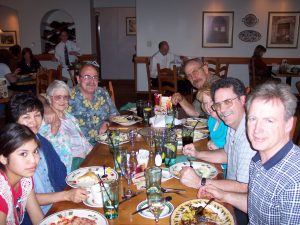 “Am I my brother’s keeper?” Cain’s sarcastic response to God after he murdered his brother Abel perfectly summarizes the mentality of a sinner separated from God: “I’m at the center of my world now. I care about others only insofar as they benefit me. Otherwise, they’re on their own.”
“Am I my brother’s keeper?” Cain’s sarcastic response to God after he murdered his brother Abel perfectly summarizes the mentality of a sinner separated from God: “I’m at the center of my world now. I care about others only insofar as they benefit me. Otherwise, they’re on their own.”
Calloused disregard is caring for others only when it benefits us
I call this sinful mentality “calloused disregard.” Disregard is the willful turning away from the ongoing need of another person who is close to you. Calloused disregard is the state one eventually arrives at after practicing disregard continuously: he no longer realizes that he is disregarding others.
Sometimes calloused disregard clothes itself in religious apparel. Two classic examples are the priest and Levite in the story of The Good Samaritan. They both “pass by” – disregard – the waylaid man left for dead because they have just come from worship in the temple, are in a state of purification and don’t want to contaminate themselves because the victim looked like he was dead (he was “left for dead”). Their religion tacitly approved their disregard.
Calloused disregard for their widowed and single parents permeates churches
Sadly, calloused disregard can permeate a church. Here’s a simple test: in the following list, which members in your congregation receive the bulk of your church’s time, energy and financial resources?
- Widows, Widowers
- Children
- Single Moms, Single Dads
- Families
- Youth
- The Disabled
- Middle and Upper Class
- Fatherless children
- The Never Married
If your church is like 99.9% of churches in America, you probably answered children, families, youth, and the middle and upper classes. Why do churches focus on these groups at the expense of the widowed, single parents and others? Because churches believe “the future lies with families” and they need money (from middle and upper class members) to fund programs for them.
How churches justify their calloused disregard for the widowed and single parents
But in the process of “focusing on the family,” churches “pass by” everyone else who has been waylaid by a divorce, the death of a loved one, or other personal disaster. Consequently, the church develops a calloused disregard for these people and it doesn’t even realize it.
So what to do? Here are some specific steps you personally can take to help your church be the Good Samaritan it needs to be for its own who are in need.
How to overcome calloused disregard in the church for the widowed and single parents
Understand the issue – Put yourself in the place of a widow or single mother in your church. How would you feel if you showed up at church and people just said “Hi.” You open your bulletin and you see that there are no programs or groups specifically for you. You spend time in worship, then leave and return to a home devoid of adult fellowship. You struggle with finances and projects around the home, but are too embarrassed to ask for help.
Sadly, the picture I have just painted for you is the norm for almost all widows and single mothers. Just understanding this is a step forward.
Focus your attention – Now go to church and take notice of how many in the congregation are sitting alone. Ask yourself who these people are and how much you know about them.
Return two months later – Churches do a great job in responding immediately to tragedies. The problem is, churches have no idea how to respond to the long term needs that can result from these tragedies. At the beginning, congregations flood the victim with attention: visits, cards, flowers and food. But eventually, this attention fades, often within a month or two.
So here’s a suggestion: be “the two months later guy.” When a tragedy happens, show up at the home two months later and ask, “What are your needs now? What does our church need to do for you long term?”
Make a list – Probably the most important thing you can do for the widowed, single parents and others in your church is to simply make a list. Your pastor or appropriate staff person will be a tremendous resource for you. As a start, you can use your list as a resource for prayer.
Prioritize your list – Now prioritize your list. Who are the neediest people in your congregation? Who are the ones who are socially isolated, struggling with finances, and/or health?
Making a list and prioritizing needs is an extremely healthy thing for a church or anyone in your church to do. If no one in your church knows who the neediest people are in your congregation, then it has no way to begin meeting those needs. Again, your pastor or appropriate staff person can help you with this process.
Formulate a plan – Now ask the Lord to help you develop a workable plan that addresses the long term needs of the people on your list. You’re welcome to use our own resources, or develop a plan of your own.
Families, children and youth are important demographics in any church, of course. But by taking some simple proactive steps, you can help your church address the needs of other demographics it often ignores.
This post first appeared in NewCommandment.org.
_______________________________________________________________

Learn how to form teams of men for every widow, single mom
and fatherless child in your church at NewCommandment.org.
_______________________________________________________________